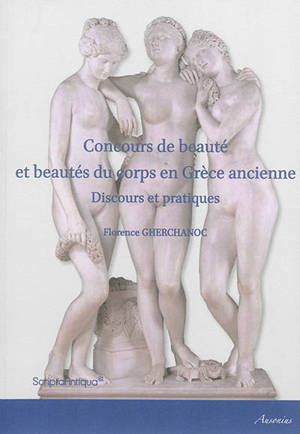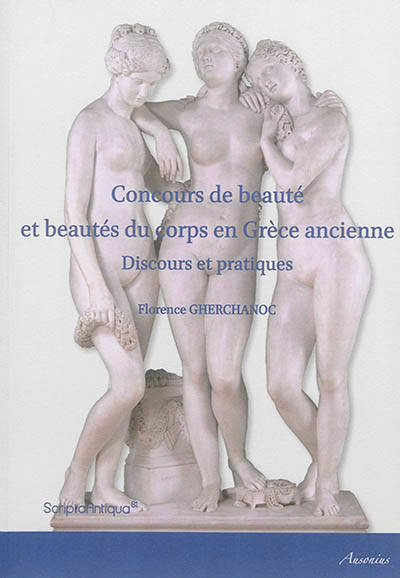
- Retrait gratuit dans votre magasin Club
- 7.000.000 titres dans notre catalogue
- Payer en toute sécurité
- Toujours un magasin près de chez vous
- Retrait gratuit dans votre magasin Club
- 7.000.0000 titres dans notre catalogue
- Payer en toute sécurité
- Toujours un magasin près de chez vous
Concours de beauté et beautés du corps en Grèce ancienne
discours et pratiques
Florence GherchanocDescription
La beauté fascine et effraye tout à la fois. Pâris, le Troyen, en a fait l'expérience
face à Aphrodite, Héra et Athéna, comme en témoigne, notamment dans l'épopée,
l'épisode paradigmatique du "jugement". Cette compétition de beauté, dans
sa forme aigüe - cette crise (krisis) - est précisément le point de départ de ce
livre consacré aux concours de beauté (kallisteia, kallous agôn, euandria, euexia,
etc.) dans les cités grecques de l'Antiquité de l'époque archaïque aux époques
hellénistique et impériale.
Suivant une approche historique et anthropologique, l'ouvrage explore, sous
l'angle des rivalités ritualisées et parfois institutionnalisées, les valeurs religieuses,
sociales et politiques de la beauté corporelle. Il montre comment celle-ci définit
des identités aussi bien individuelles que collectives dans la sphère des dieux
comme chez les humains ; il explicite en quoi le beau est bon à penser pour dire
l'ordre et l'harmonie. Il offre ainsi une réflexion sur les beautés du corps à la fois
dans l'imaginaire des anciens Grecs et dans leurs pratiques.
Beauty fascinates and frightens at the same time. The Trojan Paris is facing it with
Aphrodite, Hera and Athena, as it is told with the epic paradigmatic "judgement".
This beauty competition - this krisis - is precisely the starting point of this book
devoted to beauty contests (kallisteia, kallous agôn, euandria, euexia, etc.) in the
Greek ancient cities from the archaic period to the hellenistic and imperial times.
Adopting a historical and anthropological approach, the book explores the
religious, social and political values of bodily beauty with a specific focus on
ritualised and institutionalised rivalries. It shows how beauty defines individual as
well as collective identities both for deities and humans; in a nutshell, it explains
how beauty is good for thinking order and harmony. It thus offers reflections on
bodily beauties both within the imaginary representations of ancient Greeks and
in their pratices.
Spécifications
Parties prenantes
- Auteur(s) :
- Editeur:
Contenu
- Nombre de pages :
- 228
- Langue:
- Français
Caractéristiques
- EAN:
- 9782356131485
- Date de parution :
- 11-02-16
- Format:
- Livre broché
- Dimensions :
- 170 mm x 240 mm
- Poids :
- 480 g

Les avis
Nous publions uniquement les avis qui respectent les conditions requises. Consultez nos conditions pour les avis.






